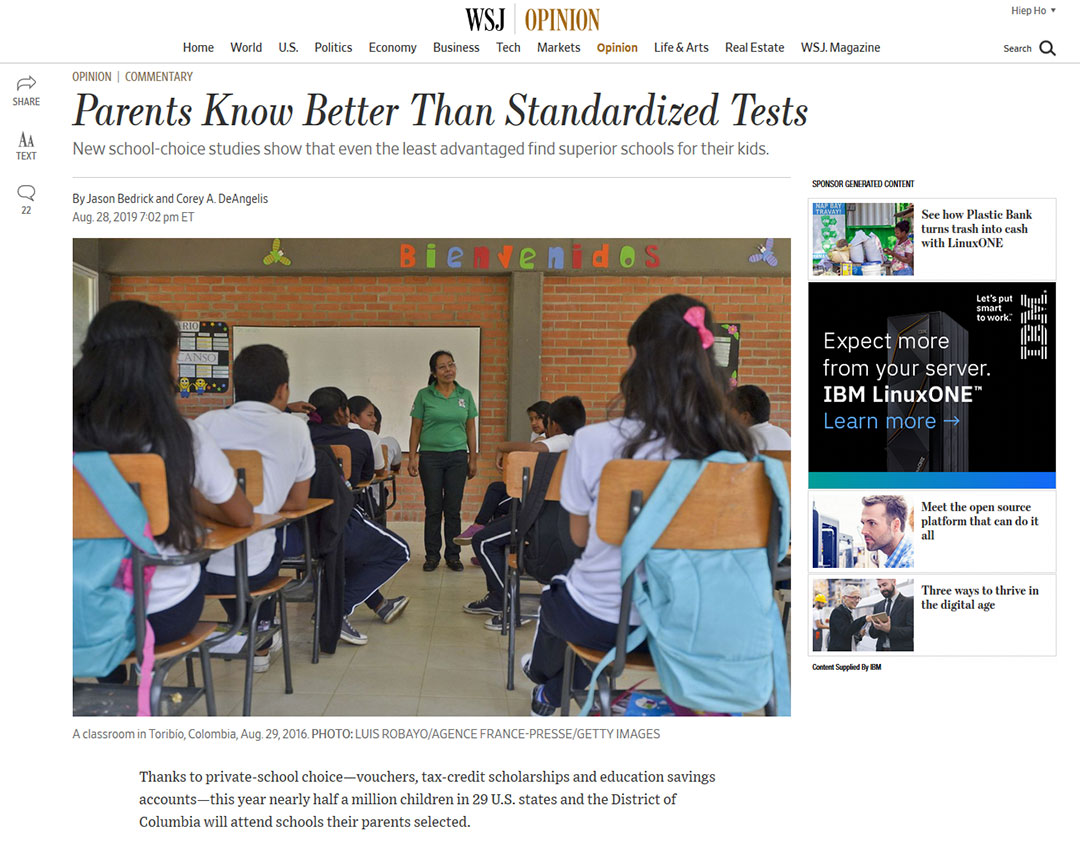By Jason Bedrick and Corey A. DeAngelis
Thanks to private-school choice—vouchers, tax-credit scholarships and education savings accounts—this year nearly half a million children in 29 U.S. states and the District of Columbia will attend schools their parents selected.
Critics of school choice often argue that low-income families lack the knowledge or ability to choose meaningfully between schools. Worrying that parents will be taken advantage of or make poor decisions, they oppose choice programs or favor onerous testing requirements to prove they are effective.
New studies on school choice in Colombia and Barbados, however, suggest families know something that tests can’t detect. These two countries, with per capita incomes a quarter and a third of America’s, respectively, can teach us a lot about how the most economically disadvantaged families choose schools.
Stanford’s Eric Bettinger and his research team found that students who won a lottery for a voucher in Colombia were 17% more likely to complete high school on time than students who lost the lottery. The study, released in July, used a method of random assignment to compare apples to apples. So it isn’t because of selection bias that lottery winners earned 8% more than lottery losers by the time they turned 33. It’s because their parents were allowed to choose schools that were better fits for their children.
...


